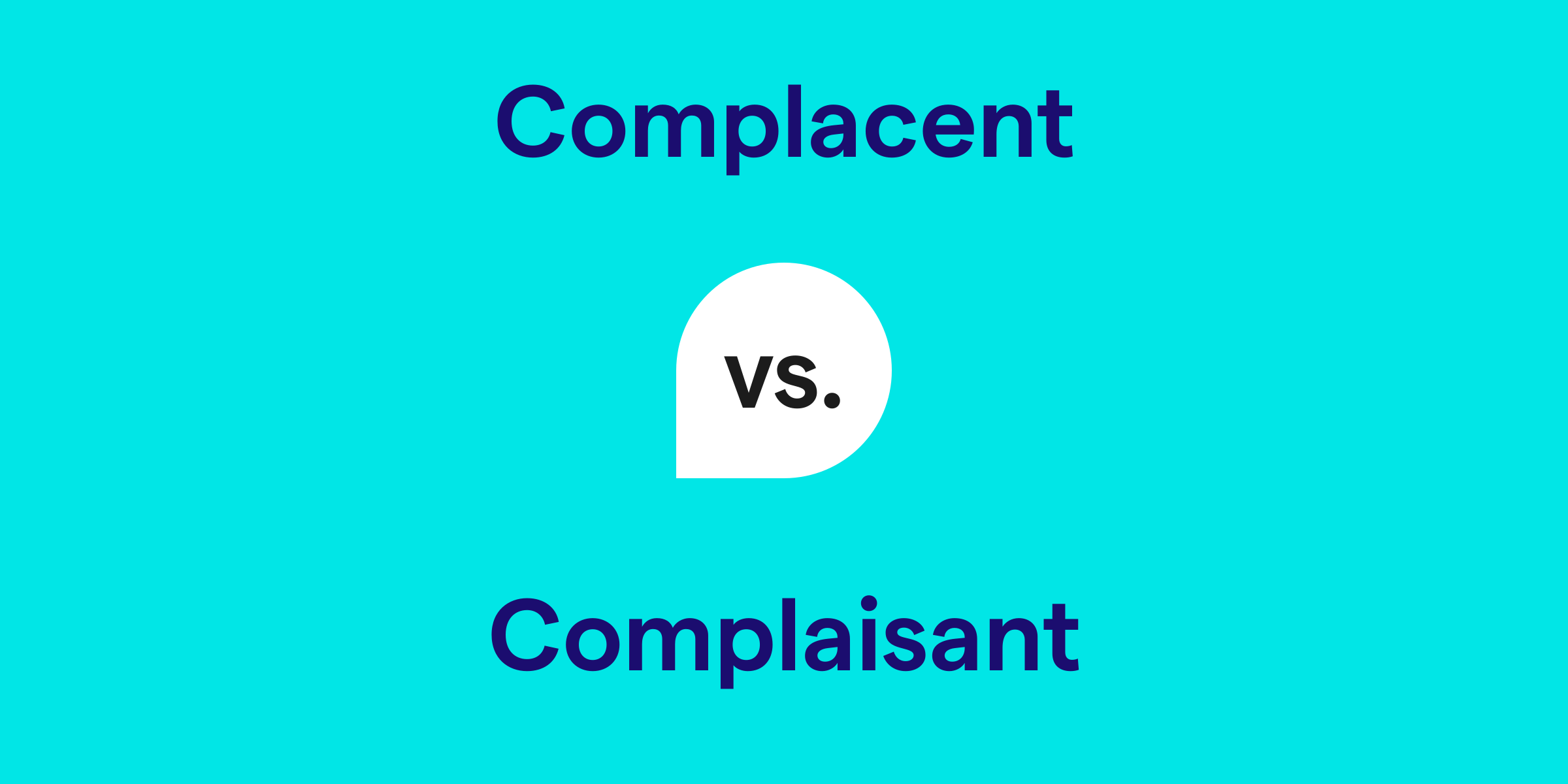Complacent vs. Complaisant: What's the Difference?
Complacent and complaisant are two terms that often cause confusion due to their similar spelling and pronunciation, but they have distinct meanings. Complacent refers to a self-satisfied attitude, where one may become uncritical about potential dangers or flaws. It conveys a sense of smugness or unearned contentment. On the other hand, complaisant describes a disposition to please or accommodate others, often going out of one's way to be polite or obliging.

How do you use the word complacent in a sentence?
The word complacent is used to describe someone who is overly self-satisfied and indifferent to potential issues or challenges. It implies a level of self-approval that prevents a person from striving to improve or acknowledging their shortcomings. Complacent is often used in a negative context, suggesting that the lack of concern or urgency is unwarranted.
Examples of complacent in a sentence
- The team cannot afford to be complacent after just one win; they need to maintain their momentum.
- Her complacent attitude towards her studies could result in her missing out on a scholarship.
- The company became complacent in innovation, allowing its competitors to surge ahead.
How do you use the word complaisant in a sentence?
Complaisant is used to characterize individuals who are eager to please others and willing to comply with their requests or desires. The term often carries a positive connotation, highlighting a person's affable and accommodating nature. It can be especially relevant in contexts where courtesy and cooperation are valued.
Examples of complaisant in a sentence
- Her complaisant manner made her a favorite among her colleagues, as she was always willing to help.
- Despite the unreasonable demands, he remained complaisant, ensuring the customer left satisfied.
- They sought a complaisant partner who would agree with the direction the committee had chosen.
Complacent and complaisant definition, parts of speech, and pronunciation
Complacent definition:
Complacent: Showing smug or uncritical satisfaction with oneself or one's achievements; self-satisfied to the point of inactivity.
Complacent parts of speech:
Complacent pronunciation:
Complacent: /kəmˈpleɪ.sənt/
Complaisant definition:
Complaisant: Willing to please others or to accept what they do or say without protest; amiably agreeable and willing to accommodate.
Complaisant parts of speech:
Complaisant pronunciation:
Complaisant: /kəmˈpleɪ.zənt/
Complacent: Showing smug or uncritical satisfaction with oneself or one's achievements; self-satisfied to the point of inactivity.
Complacent parts of speech:
- As an adjective: The complacent smile on his face suggested he was not concerned about the potential risks.
Complacent pronunciation:
Complacent: /kəmˈpleɪ.sənt/
Complaisant definition:
Complaisant: Willing to please others or to accept what they do or say without protest; amiably agreeable and willing to accommodate.
Complaisant parts of speech:
- As an adjective: Her complaisant response to every request demonstrated her cooperative spirit.
Complaisant pronunciation:
Complaisant: /kəmˈpleɪ.zənt/
Complacent vs. complaisant in a nutshell
Understanding the difference between complacent and complaisant helps ensure precise communication. Complacent signifies a self-contentment that can be negative, hinting at apathy and a lack of motivation to improve, whereas complaisant has a more positive connotation, relating to a willingness to please. Both words serve unique purposes, and despite their close phonetic resemblance, they carry distinct implications about a person's attitude and behavior.
Get AI Writing Assistance Wherever You Type
Make sure your vocabulary is on point and every punctuation mark is in the right place, no matter where you’re working. Grammarly works across more than 1 million websites and apps so you can improve your writing without copying, pasting, or breaking focus.

More Commonly Confused Words
Interest piqued? Pore (not pour) over other commonly confused words to help your writing reach peak (not peek) performance.